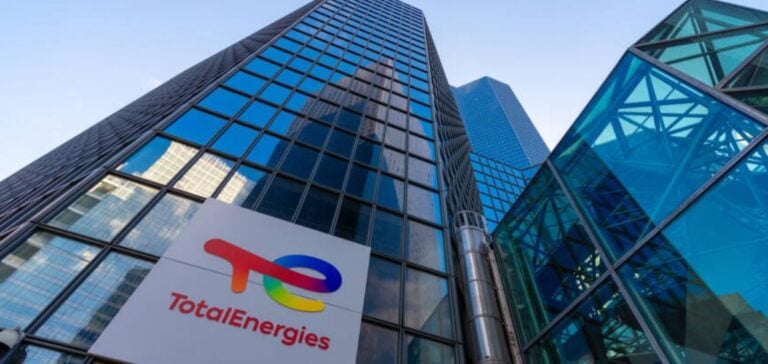The French Senate has published a report recommending that the State acquire a “specific share” in TotalEnergies to ensure that the company’s activities are aligned with national climate objectives. The report, the result of six months’ work and some forty hearings by the Commission of Inquiry into TotalEnergies’ climate obligations, contains 33 recommendations. The main objective is to enable the State to better monitor and influence the company’s renewable energy investment strategy, and to maintain national energy sovereignty. The term “specific share” refers to a single share that gives the French State a say in TotalEnergies’ strategic decisions, particularly with regard to shareholder changes and investment strategy. This right of scrutiny is crucial to avoid decisions that run counter to the national interest, such as the potential transfer of headquarters to the USA mentioned by Patrick Pouyanné, CEO of TotalEnergies.
Reactions and implications
Yannick Jadot, an ecologist senator and rapporteur for the inquiry commission, emphasized the importance of this measure for ensuring the energy transition and preserving national sovereignty. The “specific share”, estimated at 70 euros, would enable the French State to appoint a non-voting representative to TotalEnergies’ Board of Directors and to oppose certain asset disposals. Commission Chairman Roger Karoutchi noted that although TotalEnergies needs to make a greater effort, it is in a better position than most of its competitors. This proposal is intended to reassure shareholders that the group will remain a major French energy player, despite the fact that American shareholders have taken a 40% stake.
European Perspectives
In addition to “specific action”, the Senate report recommends a voluntary halt to Russian LNG imports by France. TotalEnergies holds a 19.4% stake in Russian producer Novatek. The Senate also proposes lobbying for EU sanctions on Russian LNG and opposing plans to import natural gas from Azerbaijan, where TotalEnergies is also present, because of French alliances with Armenia. These recommendations are part of a broader vision of energy security and reducing dependence on foreign fossil fuels, strengthening France’s position in European negotiations on energy policy.
Analysis and outlook
The French government’s proposed acquisition of a “specific share” in TotalEnergies reflects a political commitment to strengthening France’s energy transition and economic sovereignty. However, this measure raises questions about the balance between state intervention and attractiveness to foreign investors. Future legislative decisions and market reactions will determine how this proposal develops. Implementing these recommendations could redefine relations between the French government and major energy companies, with significant implications for France’s energy and economic policy. The debate surrounding this “specific action” and imports of Russian and Azerbaijani LNG illustrates the complex challenges France faces in achieving its climate objectives, while navigating an ever-changing geopolitical and economic landscape. The French government’s aim is to gain significant powers through this specific shareholding, irrespective of its stake in TotalEnergies. In particular, this would enable the appointment of a non-voting government representative to the Board of Directors, and the right to oppose asset disposals deemed strategic for the company and the nation. The proposal was also motivated by concerns about energy sovereignty. At his hearing, Patrick Pouyanné, CEO of TotalEnergies, raised the possibility of transferring the company’s main stock market listing to New York. Such a measure prompted a reaction from the French Senate, which stressed the importance of maintaining TotalEnergies as a French company, despite a significant proportion of American shareholders.
Financial considerations
The Senate report also took into account the financial implications of acquiring larger shares in TotalEnergies. The initial proposal for the French State to take a 5% stake, estimated at around 7 billion euros, was rejected on the grounds of its high cost. This decision is designed to avoid concerns among existing investors and to maintain the company’s financial stability. By avoiding excessively costly intervention, the Senate seeks to reconcile the state intervention necessary to guarantee climate objectives and energy security, while maintaining TotalEnergies’ attractiveness to private investors. This balanced approach could serve as a model for other similar interventions in strategic sectors.
This initiative by the French Senate marks a potential turning point in the governance of major energy companies in France, aimed at reconciling economic imperatives with environmental commitments. Implementing this “specific action” could enable the State to significantly influence TotalEnergies’ strategy, while ensuring greater transparency and consistency with national and international climate objectives.





















